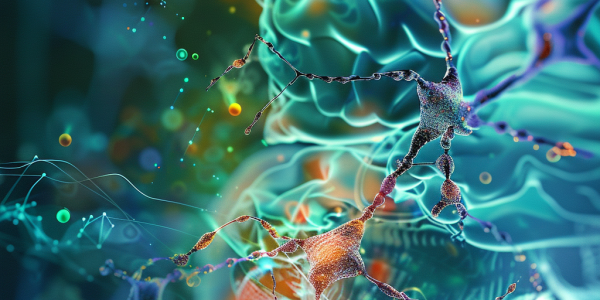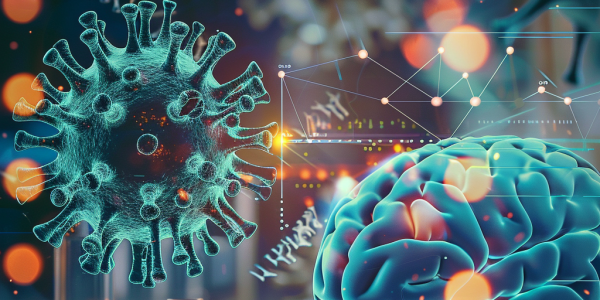Research Links Swallowing Mechanism to Binge Eating
Recent research from the University of Bonn reveals a crucial link between swallowing and overeating, suggesting that the act of swallowing may drive our desire to eat more by releasing serotonin, the ‘feel-good’ hormone. This study, which utilized fruit fly larvae to explore eating behaviors, highlights the importance of both physiological and psychological factors in managing eating habits and addressing issues like binge eating and anorexia. Understanding these mechanisms could lead to innovative strategies for promoting healthier eating patterns.
Study Reveals Ophthalmic Acid as Potential Alternative to Dopamine for Parkinson’s Treatment
A groundbreaking study from UC Irvine reveals that ophthalmic acid may be a viable alternative to dopamine for regulating motor functions, offering new therapeutic strategies for Parkinson’s disease. Published in the journal Brain, the research shows that ophthalmic acid can reverse motor impairments in mouse models for over 20 hours, challenging the notion that dopamine is the sole neurotransmitter responsible for motor control. This discovery could pave the way for innovative treatments for Parkinson’s and other movement disorders.
Understanding Digital Privacy and Drug-Induced Cognitive Deficits
Explore the crucial insights into digital privacy and data consent, alongside groundbreaking research on cognitive deficits linked to drug use. Understand how drug exposure alters brain function and the potential for targeted therapies to reverse memory impairments. Stay informed about the implications of your data choices and the latest in substance use research.
Vaping Linked to Cognitive Decline in Young Adults
A recent study presented at the American Neurological Association annual meeting reveals a troubling link between vaping and cognitive decline in young adults. Conducted in South America with 405 participants, the research shows that individuals who smoke or vape score significantly lower on cognitive assessments compared to their non-smoking peers. These findings highlight the urgent need for awareness about the cognitive risks associated with vaping, particularly among college students.
New SARS-CoV-2 Mutation Enhances Virus’s Ability to Infect the Brain
Recent research published in Nature Microbiology reveals significant mutations in the SARS-CoV-2 virus that enhance its ability to infect the central nervous system, shedding light on neurological symptoms and long COVID. Conducted by researchers from Northwestern University and the University of Illinois-Chicago, the study identifies crucial changes in the spike protein that facilitate brain infection, paving the way for targeted treatments to mitigate the neurological impacts of COVID-19.
Seven Foods to Boost Brain Health and Combat Alzheimer’s
Discover how a balanced diet rich in seven nutrient-dense foods can support brain health and potentially lower the risk of Alzheimer’s and dementia. Learn about the benefits of leafy greens, berries, fatty fish, nuts, whole grains, avocados, and dark chocolate for cognitive function and overall neurological health.
Study Reveals Junk Food’s Alarming Impact on Brain and Behavior
Recent research from the University of Michigan reveals the alarming effects of junk food on the brain and behavior, particularly its role in altering brain pathways linked to food-seeking behavior. The study highlights how high-calorie, sugary, and fatty foods can lead to dependency, overeating, and mental health issues such as anxiety and depression. Experts urge a reevaluation of dietary habits and increased awareness of nutrition’s importance for both physical and mental well-being.
Breakthrough Nasal Spray Targets Toxic Tau Proteins in Alzheimer’s Treatment
Researchers at the University of Texas Medical Branch have developed a groundbreaking nasal spray that effectively targets and clears toxic tau proteins from the brain, marking a significant advancement in Alzheimer’s treatment. This innovative therapy could revolutionize how neurodegenerative diseases are managed, offering new hope for millions affected by cognitive decline.
Leafy Greens: A Simple Key to Enhanced Brain Health
Discover how incorporating leafy greens into your diet can significantly enhance brain health. Renowned neurologist Dr. Dean Sherzai highlights the cognitive benefits of consuming salad greens like spinach and kale, revealing that just a couple of servings daily can improve brain function and combat age-related decline. Learn more about the essential nutrients in these vegetables and how simple dietary changes can lead to profound health improvements.
Game of Thrones Study Reveals Insights into Facial Recognition and Prosopagnosia
A groundbreaking study using footage from ‘Game of Thrones’ reveals how familiarity influences facial recognition in the brain. Researchers found that avid fans show increased brain activity in areas linked to non-visual knowledge, highlighting the connection between personal experiences and face recognition. This research not only sheds light on prosopagnosia, a condition affecting 1 in 50 people, but also suggests new therapeutic strategies for those with face blindness.










